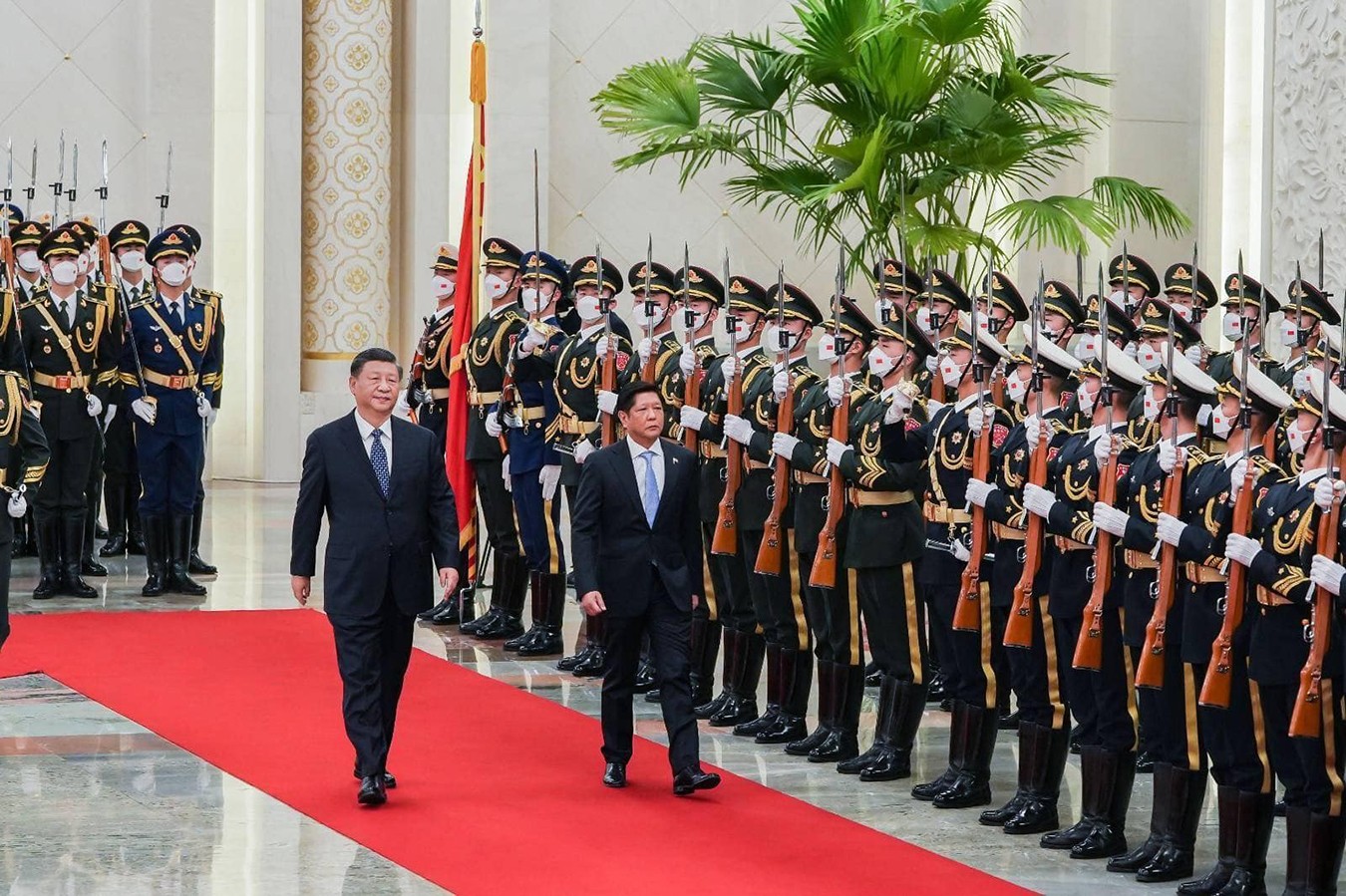News
PH, China yet to reach compromise on PH fishers’ plight: Marcos

FILE: President Ferdinand R. Marcos, Jr. in a welcoming ceremony by Chinese President Xi Jinping and First Lady Peng Liyuan in China. (OPS Photo)
MANILA – President Ferdinand R. Marcos Jr. on Monday said the Philippines and China have yet to reach a “compromise” that will allow Filipinos to fish in the contested West Philippine Sea.
Marcos made this remark after the Philippine Coast Guard (PGC) bared that it is investigating an incident involving a Chinese Coast Guard vessel that allegedly shooed away a Filipino fishing boat in Ayungin Shoal earlier this month.
The incident happened just weeks after Marcos and Chinese President Xi Jinping agreed to make a compromise during the former’s trip to Beijing from Jan. 3 to 5.
“We haven’t come to that compromise yet. And the timing of what we refer to as a shadowing, it’s what they do is they shadow our fishing boats. So that incident happened right after I had returned from China,” he said in an interview with select reporters at Malacañang Palace.
Following the incident, Marcos said the Philippine government made immediate use of its “direct communication” with China to deal with miscommunication in the contested sea.
The two countries signed an agreement establishing a joint direct communication mechanism during Marcos’ trip to China.
“We have immediately used that mechanism that I talked about na sinabi (that says) we can even immediately contact the Chinese government and hopefully our counterparts on the other side can bring it to President Xi’s attention, this problem, and we have done that,” he said.
However, Marcos said this hotline should not stop them from filing protests or sending note verbales.
He also hoped that the Philippines and China would soon come up with an arrangement that will allow Filipinos to fish in the WPS.
“I just hope we can come to some kind of arrangement because I cannot see the utility for the Chinese of doing that. These fishing boats are not armed. They don’t pose a threat to anyone. So I think that is something that we can achieve in the near – in the near term,” he said.
China claims most of the South China Sea under its so-called nine-dash line map, which also overlaps with the Philippines’ exclusive economic zone.
In a 2016 arbitral ruling, the Hague-based Permanent Court of Arbitration ruled that Beijing’s nine-dash line, a demarcation that covers almost 80 percent of the South China Sea, is illegal. China continues to disregard the verdict.





















